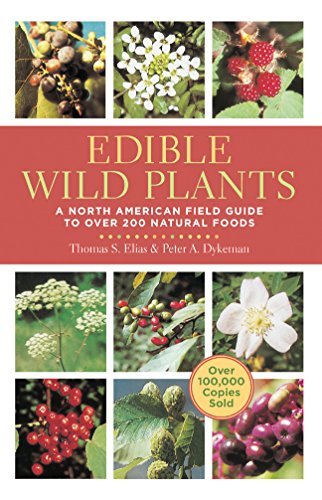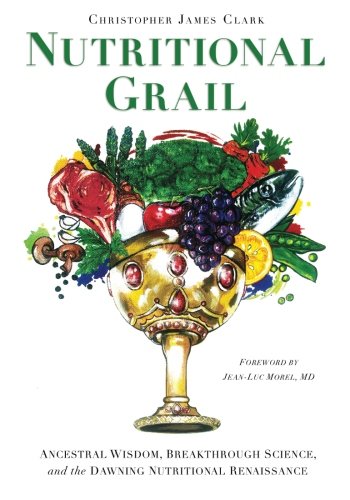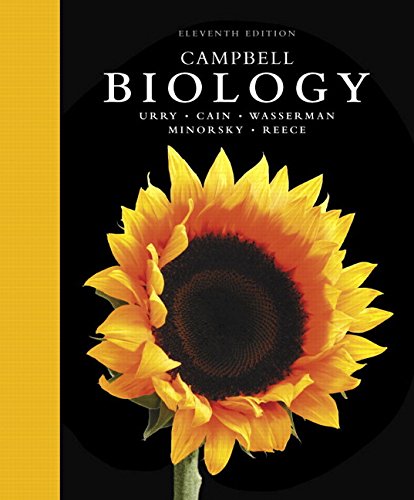(Part 2) Top products from r/herbalism
We found 22 product mentions on r/herbalism. We ranked the 87 resulting products by number of redditors who mentioned them. Here are the products ranked 21-40. You can also go back to the previous section.
21. DIY Bitters: Reviving the Forgotten Flavor - A Guide to Making Your Own Bitters for Bartenders, Cocktail Enthusiasts, Herbalists, and More
Sentiment score: 1
Number of reviews: 1
 Show Reddit reviews
Show Reddit reviews22. Adaptogens: Herbs for Strength, Stamina, and Stress Relief
Sentiment score: 1
Number of reviews: 1
 Show Reddit reviews
Show Reddit reviews23. Garden Weeder & Manual Weed Puller with Large Ergonomic Handle; Best for Lawn and Garden Weeding, Includes Burlap Bag - Great Gardening Gift
Sentiment score: -1
Number of reviews: 1
REMOVE UNWANTED WEEDS like dandelions and thistles from your lawn and garden safely and naturally with this curved shaft weeding tool.DURABLE & RUST-RESISTANT one-piece aluminum shaft leverages against the ground to lift stubborn weeds from soil with reduced hand & wrist fatigue.FEEL THE DIFFERENCE....
 Show Reddit reviews
Show Reddit reviews24. Clinical Pathophysiology Made Ridiculously Simple
Sentiment score: 1
Number of reviews: 1
Medmaster
 Show Reddit reviews
Show Reddit reviews25. Human Anatomy & Physiology (Marieb, Human Anatomy & Physiology) Standalone Book
Sentiment score: 1
Number of reviews: 1
LAB TEXTBOOK
 Show Reddit reviews
Show Reddit reviews26. Robbins Basic Pathology (Robbins Pathology)
Sentiment score: 1
Number of reviews: 1
Elsevier Health Sciences
 Show Reddit reviews
Show Reddit reviews27. Principles and Practice of Phytotherapy: Modern Herbal Medicine
Sentiment score: 1
Number of reviews: 1
 Show Reddit reviews
Show Reddit reviews28. Why People Don't Heal and How They Can
Sentiment score: 1
Number of reviews: 1
Harmony
 Show Reddit reviews
Show Reddit reviews29. Remington: The Science and Practice of Pharmacy
Sentiment score: 1
Number of reviews: 1
Used Book in Good Condition
 Show Reddit reviews
Show Reddit reviews30. Cosmic Serpent: DNA and the Origins of Knowledge
Sentiment score: 1
Number of reviews: 1
Used Book in Good Condition
 Show Reddit reviews
Show Reddit reviews31. The North American Guide to Common Poisonous Plants and Mushrooms
Sentiment score: -1
Number of reviews: 1
Used Book in Good Condition
 Show Reddit reviews
Show Reddit reviews32. The Herbal Handbook: A User's Guide to Medical Herbalism
Sentiment score: 0
Number of reviews: 1
Used Book in Good Condition
 Show Reddit reviews
Show Reddit reviews33. Edible Wild Plants: A North American Field Guide to Over 200 Natural Foods
Sentiment score: -1
Number of reviews: 1
Edible Wild Plants A North American Field Guide to Over 200 Natural Foods
 Show Reddit reviews
Show Reddit reviews34. Healing Wise (4) (Wise Woman Herbal)
Sentiment score: 1
Number of reviews: 1
HEALING WISE
 Show Reddit reviews
Show Reddit reviews35. Prakriti: Your Ayurvedic Constitution (Your Ayurvedic Constitution Revised Enlarged Second Edition)
Sentiment score: 1
Number of reviews: 1
ISBN13: 9780965620833Condition: NewNotes: BRAND NEW FROM PUBLISHER! 100% Satisfaction Guarantee. Tracking provided on most orders. Buy with Confidence! Millions of books sold!
 Show Reddit reviews
Show Reddit reviews36. Smoke Plants of North America: A Journey of Discovery
Sentiment score: 1
Number of reviews: 1
 Show Reddit reviews
Show Reddit reviews37. Real Food for Pregnancy: The Science and Wisdom of Optimal Prenatal Nutrition
Sentiment score: 1
Number of reviews: 1
 Show Reddit reviews
Show Reddit reviews38. Northern Plant Lore: A Field Guide to the Ancestral Use of Plants in Northern Europe
Sentiment score: 2
Number of reviews: 1
Used Book in Good Condition
 Show Reddit reviews
Show Reddit reviews39. Nutritional Grail: Ancestral Wisdom, Breakthrough Science, and the Dawning Nutritional Renaissance
Sentiment score: 1
Number of reviews: 1
 Show Reddit reviews
Show Reddit reviews40. Campbell Biology (11th Edition)
Sentiment score: 1
Number of reviews: 1
This refurbished product is tested and certified to work properly. The product will have minor blemishes and/or light scratches. The refurbishing process includes functionality testing, basic cleaning, inspection, and repackaging. The product ships with all relevant accessories, and may arrive in a ...
 Show Reddit reviews
Show Reddit reviews
You've gotten great advice here so far. I recommend anyone looking for a way into herbalism to start with herbalist Susun Weed's nourishing infusion protocol. I've been into herbalism for over 20 years, but a few years ago I started drinking a rotating series of strong infusions (like a strong tea, but with a big amount of a single herb, and infused overnight) like she recommends, and I really saw and felt powerful health changes. The herbs she recommends for this (nettle, oatstraw, linden, comfrey, red clover, mullein, raspberry leaf) are all nourishing herbs that are safe to use long term.
​
If I had Wartenberg's, I would probably drink a strong infusion of oatstraw every day (in addition to my rotating strong infusion) -- this herb is nourishing for the nervous system and helpful with pain. I'd massage the area with St. John's Wort oil and also take it as a tincture internally, along with a tincture of scullcap. I'd also see an acupuncturist.
​
If I had interstitial cystitis, I'd drink a strong infusion of Russian / Blue comfrey (Symphytum uplandica) daily.
​
So, that's 8-16 ounces each of comfrey and oatstraw daily to address your specific ailments, then if you want to for overall health rotating strong infusions of nettle, linden, red clover, mullein, and raspberry leaf. + the St. John's wort topically and as tincture, and scullcap tincture. + acupuncture.
​
Not technically related to herbalism, but complementary I would say -- anytime I am faced with a health challenge I re-read the book 'Why People Don't Heal and How They Can' by Caroline Myss. It's such a great, clear book about how to take radical responsibility for your health and healing, which sounds like the path you are walking down anyway. I think you'd love it.
Okay so this isn't complete, and apparently my account is too young (or doesn't have enough karma?) to make a post to the subreddit :(
But here is the original post I constructed to submit:
Hello r/herbalism.
This book list was compiled by a good friend of mine who has been a practicing herbalist for a while now. I thought you might all enjoy this list; it's divided into different sections based on the particular area of study. My friend would also like me to inform you "If anyone should have difficulty locating these books, I've found a website, called bookfinder.com, to be most useful in acquiring these books for a fraction of the price from regular booksellers."
Beginner Herbalism, General
Advanced Herbalism
Pharmacognosy and Phytochemistry (Part of the Advanced Herbalism List)
Medicinal Mycology
What about these books?
Making your own tinctures is a rewarding practice. This book is specific to bitters but teaches you a lot about the process of creating tinctures, including preparations for 90 herbs! It also has some wonderful recipes for bitters both tincture form and edible form (beverages and foods). I highly recommend it!
DIY Bitters: Reviving the Forgotten Flavor
By Guido Mase and Jovial King
https://www.amazon.com/DIY-Bitters-Bartenders-Enthusiasts-Herbalists/dp/159233704X
Hops is one of the most relaxing smoking herbs I know of and a relative of Marijuana.
I make a several smoke mixes.. DM me for more info
Also my friend wrote a nice book on smoking plants.
Smoke Plants of North America https://www.google.com/url?sa=t&source=web&rct=j&url=https://www.amazon.com/Smoke-Plants-North-America-Illustrated/dp/0970372132&ved=2ahUKEwi_6cbk0rLhAhVD7qwKHfDKChUQFjAJegQIARAB&usg=AOvVaw2r6uzoGYF0YjITmTGYdK6n
For a general overview of the history of traditional herbal medicine in the West, I recommend Barbara Griggs' book, Green Pharmacy: The History and Evolution of Western Herbal Medicine.
For traditional shamanic, magical use of herbal medicinal plants, I suggest you look into the Native American tradition(s). If you are looking for something in the area of psychedelics, I can recommend one book I liked: Cosmic Serpent: DNA and the Origins of Knowledge
For a bend towards energy medicine and the inner practice of herbalism, see Matthew Wood's books, for example The Practice of Traditional Western Herbalism: Basic Doctrine, Energetics, and Classification.
Get yourself something like this:
https://www.amazon.com/Weeder-Manual-Ergonomic-Garden-Weeding/dp/B07G32YSPJ/ref=sr_1_9?ie=UTF8&qid=1549575887&sr=8-9&keywords=weed+puller
You can obviously use a small spade if you're so inclined, but I found that I more often broke the taproot doing that and got less return for my effort.
Also, while I won't argue with what the other posters have said, harvesting in Spring rather than fall also gets you greens that are less bitter, and fresh flower heads you can use for tea or wine. The greens harvested in Fall are exceptionally bitter and quite unpalatable unless, like me, you've developed a taste for it.
>chat about poultice recipes I would be so grateful.
Check out the discord, link is in the sidebar. :)
I need to check some literature before I can recommend specific poultice recipes to you; will update in a little bit. For joint pain and arthritis, I usually suggest that the individual should consume rich, freshly made/homemade bone broth. (Chicken feet or Cow Bones; the main goal is to increase collagen consumption) but gout is an entirely different beast; no alcohol, no processed meats, limit red meat, decrease sugar intake, drink more water, light exercise, etc. etc.
It's unfortunately difficult to find recipes for herbal formulas just floating around the internet;
the most you'll usually find is rough guides or old herbal texts, but they can be helpful if you're studying herbalism. SWSBM I know has several old herbals on their homepage, but the problem with many of the old herbals and formularies and pharmacopeias is their lack of organization; often times organized alphabetically instead of by treatment, which can make it difficult to locate a specific remedy (and sometimes they have some pretty wild ingredients that are most definitely not safe to add)
>books of “plants that are Poisonous, edible etc”
Answering this question depends on what kinda info you're looking for. Do you want guidebooks to the poisonous and edible plants of your area? Herbals or entheogen texts on how to prepare poisonous plants to use for medicines or other drugs? What's the etc?
If you're in North America, I can suggest this general guidebook to Poisonous Plants, as well as this guide to common edible wild plants of North America.
However, I must say it'd be better to get area-specific guides if you're looking to identify plants around you!
I hope you find this post helpful, and good luck with your poultice recipes! :)